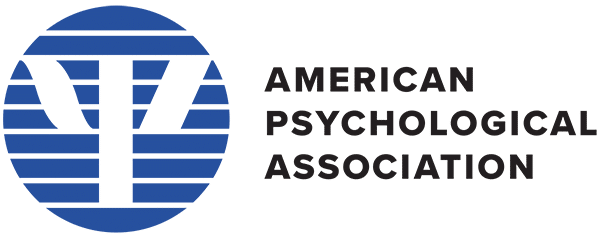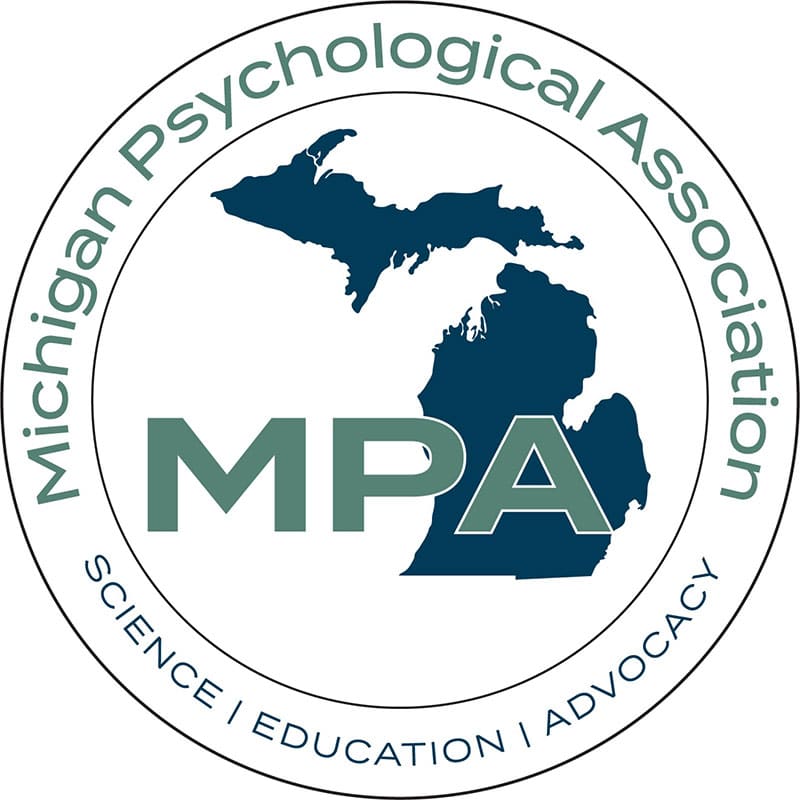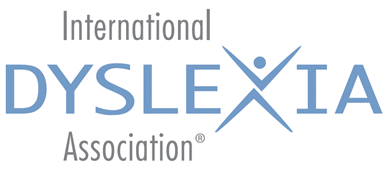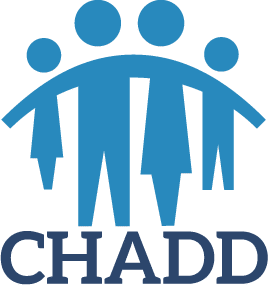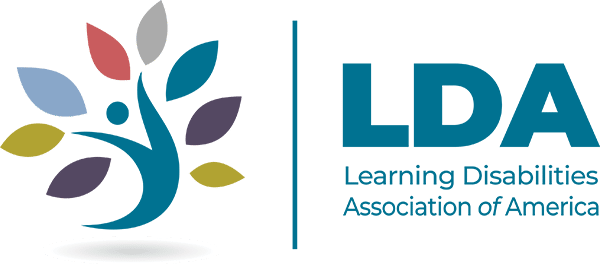ADHD Treatment in Barton Hills MI
In Barton Hills you’ll find evidence-based ADHD treatment that combines thorough assessment, medication management, behavioral coaching, and practical school or workplace accommodations tailored to your needs.
Clinicians use standardized interviews, rating scales, and collateral history to clarify diagnosis and rule out other causes.
Treatment emphasizes minimal effective medication dosing, parent or skills training, and organizational strategies alongside sleep, nutrition, and exercise plans.
You’ll get measurable goals, regular follow-up, and a clear plan — see next steps.

Start Your Journey Here
Offering In-Person and Teletherapy Options For You or a Loved One
Understanding ADHD: What It Is and How It Affects Daily Life
Although attention-deficit/hyperactivity disorder (ADHD) has neurodevelopmental roots that begin in childhood, it persists into adulthood for many people and affects attention, impulse control, and activity regulation in measurable ways.
ADHD begins in childhood and often continues into adulthood, impairing attention, impulse control, and activity regulation.
You should know ADHD reflects differences in brain networks governing executive function, motivation, and reward processing, which influence task initiation, sustained effort, and organization.
Evidence shows interventions combining behavioral approaches, structured routines, and, when indicated, pharmacotherapy improve functioning; you’ll want clinicians who address medication myths transparently and balance risks and benefits.
In daily life you’ll encounter challenges in time management, prioritization, and follow-through, yet specific coping strategies—breaking tasks into steps, external reminders, environmental adjustments, and clear accountability—reduce friction and enhance service to others.
A collaborative, stigma-free care plan will let you leverage strengths, sustain relationships, and fulfill roles reliably while monitoring outcomes with objective measures.
Seek evidence-based guidance to tailor supports that align with your service-oriented goals and preferences.
Signs and Symptoms in Children and Adults in Barton Hills MI
You may notice core ADHD features differ by age, with children more often showing hyperactivity, impulsivity, and inattention that interfere with school and peer interactions.
In adults, symptoms commonly present as persistent inattention, poor time management, and emotional dysregulation that impair work and relationships.
You’ll see common presentations and evidence-based indicators to help you recognize and distinguish symptoms across the lifespan.
Childhood Symptoms
Three core symptom domains— inattention, hyperactivity, and impulsivity—characterize childhood ADHD and typically emerge before age 12.
You’ll notice difficulty sustaining attention, forgetfulness, frequent careless errors, and trouble following multi-step instructions.
Hyperactivity shows as fidgeting, excessive running or climbing, and inability to remain quiet in structured settings.
Impulsivity appears with interrupting, difficulty waiting turns, and risky behaviors without forethought.
These patterns impair academic performance and peer relationships, and they often prompt referrals for assessment.
Treatment planning is evidence-based and individualized; you’ll weigh behavioral interventions, school accommodations, and pharmacotherapy while monitoring medication side effects closely.
You’ll collaborate with families, teachers, and clinicians to support skill-building, reduce impairment, and foster resilience in the child’s daily routines.
You should track progress and adjust strategies in regular multidisciplinary reviews.
Adult Symptoms
How do core ADHD symptoms show up in adulthood? You may struggle with sustained attention, frequent distractibility, impulsive decisions, and difficulty organizing tasks at work or in caregiving roles. Emotional dysregulation and time-blindness can undermine relationships and reliability, though strengths like creativity and hyperfocus can help you serve others effectively.
Evidence supports holistic assessment and multimodal treatment; you’ll want to weigh stimulant and nonstimulant medications against medication side effects, monitor outcomes, and consider behavioral coaching. Psychotherapy, skills training, workplace accommodations, and certain alternative therapies can complement pharmacotherapy when evidence supports them.
Collaborate with clinicians to individualize care, prioritize functional goals, and balance symptom reduction with quality of life to sustain your capacity to contribute compassionately. Ask about monitoring plans and peer-support resources regularly too.
Assessment and Diagnosis Services in Barton Hills
When you seek assessment and diagnosis services in Barton Hills, you’ll receive thorough diagnostic evaluations that combine clinical interviews, standardized rating scales, and functional assessments to accurately characterize ADHD and any co-occurring conditions.
A multidisciplinary assessment team—typically including psychiatrists, psychologists, and occupational or educational experts—works collaboratively to integrate medical, developmental, and psychosocial data.
We’ll use this evidence-based, cooperative approach to produce a clear diagnostic formulation and guide personalized treatment planning.
Comprehensive Diagnostic Evaluations
Because accurate diagnosis guides effective treatment, our thorough diagnostic evaluations in Barton Hills combine a structured clinical interview, standardized rating scales, collateral history, and targeted cognitive or neuropsychological testing to determine whether ADHD—or another condition—is causing your difficulties.
You’ll receive an evidence-based assessment that distinguishes ADHD from anxiety, depression, learning disorders, and medical contributors, with attention to medication side effects and interactions. We’ll review developmental history, functional impairment, and objective test data so you can make informed decisions about treatment options.
Our clinicians explain findings clearly, discuss prognosis, and outline personalized plans that may include behavioral strategies, coaching, or alternative therapies when appropriate. You’ll leave with a concise diagnostic report and practical recommendations to support your caregiving and service goals in Barton Hills clinics.
Multidisciplinary Assessment Team
With a coordinated multidisciplinary team, you’ll receive an evidence-based, collaborative assessment that reduces diagnostic error and targets treatment more precisely.
You’ll work with psychiatrists, psychologists, occupational therapists, and educators who share data, clinical observations, and validated measures to clarify ADHD presentations and comorbidities.
The team assesses cognitive function, behavioral patterns, sensory processing, and functional impairment in real-world settings.
You’ll get clear differential diagnoses, risk mitigation strategies, and individualized care plans emphasizing measurable goals.
Medication monitoring includes systematic evaluation for medication side effects and functional benefits, coordinated with behavioral and educational interventions.
You’ll be supported to implement accommodations, train caregivers, and measure outcomes, so you can serve patients with integrity, efficiency, and compassion while continually refining treatment based on objective evidence and shared accountability frameworks.
Evidence-Based Medication Options and Management
Although medication isn’t the only component of ADHD care, it’s often the most effective single intervention for reducing core symptoms; evidence supports stimulants (methylphenidate and amphetamine formulations) as first-line agents and nonstimulants (atomoxetine, guanfacine, clonidine) as alternatives or adjuncts. You’ll work with clinicians to choose an agent based on symptom profile, comorbidities, and daily routines.
Medication is often the most effective single treatment for ADHD; stimulants are first-line, with nonstimulants as alternatives.
Titration follows clear evidence-based protocols to find the minimal effective dose while monitoring blood pressure, weight, sleep, and mood. Medication safety, side effect management and adherence are priorities: clinicians should educate you and caregivers on expected benefits, transient adverse effects, and warning signs that require urgent review.
Long-term follow-up evaluates functional outcomes, cardiovascular risk factors, and potential misuse, adjusting treatment when needed. If stimulants aren’t tolerated or contraindicated, nonstimulants offer validated symptom reduction with different monitoring needs.
You’ll be supported in shared decision-making, informed consent, and coordination with schools to optimize medication gains.
Behavioral Therapies and Parent Training Programs
Behavioral therapies and parent training programs are core, evidence-based treatments that help you change the environment and routines that drive ADHD-related problems and improve day-to-day functioning.
You’ll learn specific, observable strategies, such as consistent praise, clear instructions, and predictable routines, that reduce disruptive behaviors and increase task completion.
Clinicians guide you to set measurable goals, monitor behavior, and adjust contingencies based on data. Parent training emphasizes skill building so you can respond calmly, reinforce positive behaviors, and use time-limited consequences effectively. These interventions reduce parental stress and improve child functioning when delivered with fidelity and coaching.
Many programs are brief, manualized, and supported by randomized trials showing moderate to large effects on behavior. You’ll collaborate with therapists to generalize skills across home, school, and community settings, coordinate with teachers and providers, and adopt structured strategies.
ADHD Coaching and Organizational Skill Building
Because executive difficulties often persist despite medication and parent strategies, ADHD coaching focuses on teaching practical organizational, planning, and time-management skills you can apply daily.
A qualified coach helps you break tasks into manageable steps, set realistic goals, use visual planning tools, and design consistent routines supported by evidence-based behavioral strategies. You’ll practice prioritization, calendar use, and interruption management in sessions that emphasize measurable progress and accountability.
Coaching integrates mindfulness techniques to improve attention regulation and stress resilience, and it promotes peer support groups so you can learn adaptive strategies from others with lived experience.
You’ll receive structured feedback, cueing systems, and data-driven tracking to evaluate what works. This collaborative, compassionate approach equips you to sustain improvements in functioning, maintain relationships, and continue serving others effectively, while respecting your individual strengths and neurodiversity.
Your coach will tailor strategies to roles where you support clients, teams, and community members.
Barton Hills School Supports and Workplace Accommodations
You can access formal school supports such as IEPs or 504 plans that document individualized academic accommodations and evidence-based instructional strategies.
At work, you’re entitled to reasonable accommodations under disability law—like flexible scheduling, task modification, or assistive technology—that reduce impairment and improve performance.
Work with clinicians, educators, and employers to identify specific needs, gather objective evidence, and implement monitored, outcome-focused accommodations.
IEPs and 504 Plans
How can schools turn diagnosis into practical support for students with ADHD? You can pursue an IEP or 504 Plan to ensure evidence-based educational accommodations and behavioral interventions are implemented consistently.
An IEP offers individualized goals and specialized instruction when ADHD substantially limits learning; a 504 Plan provides access supports and classroom modifications when disability impacts participation.
You’ll collaborate with teachers, experts, and families to review assessments, set measurable objectives, and monitor progress.
Use data-driven strategies—task segmentation, positive reinforcement, preferential seating, extended time—and scheduled review meetings to adjust supports.
Documented plans help you advocate for resources and train staff, promoting equitable access and academic success. Maintain clear communication and respect student dignity while tracking outcomes.
Continue collecting outcome data to refine supports systematically, regularly.
Workplace Reasonable Accommodations
When shifting from school supports to the workplace, translate proven classroom strategies into reasonable accommodations protected under laws like the ADA, so you and your employer can address functional barriers to job performance.
You can request workplace accommodations grounded in assessment of executive functioning deficits—task segmentation, written schedules, priority cues, extended deadlines, and reduced distractions.
Employers often respond to clear, job-related recommendations linked to clinical evaluation and treatment plans.
Frame requests around specific duties and measurable outcomes; propose trial periods and reasonable adjustments that preserve fundamental job functions.
These evidence-based steps respect confidentiality, promote sustained productivity, and let you continue serving others effectively while managing ADHD-related challenges with dignity and support.
Consult an occupational expert or clinician to tailor accommodations and monitor functional outcomes.
Lifestyle Interventions, Nutrition, and Sleep Strategies
Although lifestyle measures won’t replace medication for many people, targeted changes in daily routine, nutrition, and sleep can measurably reduce core ADHD symptoms and improve executive functioning.
You can prioritize consistent sleep-wake schedules, aiming for sufficient restorative sleep to support attention, emotional regulation, and working memory; use bedtime routines and light exposure control to stabilize circadian rhythms.
Nutritional strategies matter: emphasize whole foods, balanced macronutrients, and regular meals; practice mindful eating and consider nutrient timing to avoid blood sugar swings that worsen inattention or impulsivity.
Regular moderate exercise—especially aerobic activity—improves attentional control and mood via dopaminergic and noradrenergic pathways.
Implement brief organizational rituals: pre-planned meals, sleep-checklists, and staggered activity blocks to reduce decision fatigue.
Track changes quantitatively with sleep logs and symptom rating scales to evaluate effectiveness.
Collaborate with your care team before altering medications or supplements.
These practical, evidence-aligned steps help you continue serving others more reliably.
Locating and Evaluating Local Barton Hills ADHD Specialists
A focused, evidence-based search for local ADHD experts helps you get accurate assessment and appropriate treatment faster.
When evaluating clinicians, check credentials (psychiatry, neurology, psychology, or pediatric behavioral medicine), board certification, and experience with adult and pediatric presentations. Ask about outcome measures they use, published protocols, and how they monitor medication side effects.
Look for clinicians who combine pharmacotherapy with behavioral interventions and who can discuss alternative therapies with evidence summaries rather than anecdote.
You’ll want providers who collaborate with schools, primary care, and community supports, since coordinated care improves function. Seek recommendations from local professional organizations and review validated patient outcome data when available.
During initial outreach, note whether staff respond promptly, explain billing and follow-up, and respect your mission to serve others.
Choosing a specialist who balances rigorous assessment, transparent communication, and compassion will help you support those you serve effectively and promote long-term functional gains.
What to Expect at Your First Barton Hills ADHD Appointment
Expect your first ADHD appointment to be thorough and collaborative: you’ll give a focused history of symptoms, developmental milestones, medical and psychiatric background, current medications, and functional impacts at work, school, and home.
The clinician will use structured interviews, rating scales, and collateral information to form an evidence-based diagnostic impression.
You’ll discuss differential diagnoses, comorbidities, and objective measures that guide treatment choices.
Together you’ll set measurable goals tied to daily functioning and service roles, prioritizing interventions that restore reliability and capacity to help others.
Treatment planning often includes behavioral strategies, psychoeducation, and when indicated, pharmacotherapy.
You’ll receive practical coaching on organizational systems, time management, and brief mindfulness practices to reduce distractibility and improve task completion.
Expect clear follow-up steps, safety monitoring, and referrals for coaching or community supports.
You’ll leave with a documented plan, agreed goals, and actionable strategies you can implement immediately.
You’ll feel supported and empowered.
Conclusion
You’re not alone in seeking effective ADHD care in Barton Hills. With evidence-based diagnosis, medication management, behavioral therapies, school and workplace accommodations, and lifestyle strategies, you’ll get personalized, measurable support that reduces impairment and improves functioning.
Clinicians here use validated assessments and treatment algorithms, and they’ll involve you and your family in shared decision‑making.
Reach out for an appointment so you can start a monitored, compassionate plan that prioritizes safety, goals, and quality of life.
Experienced and Highly Qualified Psychotherapy and Psychological Testing Services

